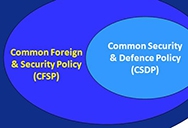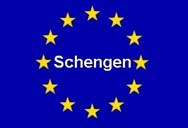The associations representing the European and British life science industry (AESGP, ABPI, BGMA, BIA, EBE, EFPIA, EUCOPE, EuropaBio, Medicines for Europe, PAGB, Vaccines Europe) have today launched a joint policy document on the potential impact of the United Kingdom’s exit the European Union.
Today, organisations representing the life science industry in the EU and the UK have called for medicines to be a priority in phase 2 of the Article 50 negotiations.
Setting out their priorities in advance of the European Council taking place on 14-15th December in Brussels, the sector has sent a clear message that the regulation, trade and supply of medicines must be a priority for the second phase of negotiations.
Whilst being encouraged by the breakthrough in phase 1 of the negotiations so that the second phase can now begin, the sector states that focusing on the framework for transitional arrangements and future relations with the UK must be a priority for negotiators.
The organisations are of the opinion that the agreement of transitional arrangements after March 2019 will be critical in ensuring there is minimal disruption to patients receiving medicines after the UK leaves the EU. Such a period will be essential in allowing companies to make the necessary changes to marketing authorisations and to their supply chains and ensure patients experience no disruption to their access to medicines. As such, negotiators should include access to medicines and the implications of Brexit for patients across the EU in the second phase of negotiations and be agreed in both the future agreement and in transitional arrangements.
The publication of this joint policy paper shows that the integrated nature of the supply chains for medicines across Europe, alongside a shared regulatory framework, means that patients in both the UK and EU need an early agreement on the future of medicines in phase 2 of the negotiations.
Among several key priorities, the joint paper sets out the following:
- Patient access to medicines must be a primary consideration for phase two of the Article 50 negotiations.
- Close cooperation in the regulation of medicines, including mutual recognition of regulatory activities and quality testing, is essential in ensuring that patients in the EU and the UK can continue to access medicines.
- Trade between the UK and EU will ensure that medicines are able to continue to move between both regions, ensuring that both UK and EU patients can continue to access medicines.
Provided the UK remains in the single market or in a new legal arrangement with the EU based on consistency of regulatory frameworks, the EU and the UK IP systems should remain aligned in order to avoid uncertainties for industry.
Hubertus Cranz, Director General, Association of the European Self-Medication Industry (AESGP), stated:
“Self-care products are often the first choice when European citizens face a health issue. Phase two of the Brexit negotiations should make sure that the availability of non-prescription medicines and self-care medical devices is not put in danger. This requires an open minded, pragmatic approach concerning the transitional arrangements, but also for the long-term relationship between the UK and the future EU27. Concrete proposals have now been put on the table and we are confident that they will make a constructive contribution to the further negotiation process. The current EU regulatory network should be kept intact as much and as long as possible to avoid disruption to the supply of all kind of self-care products.”
Mike Thompson, CEO, Association of the British Pharmaceutical Industry (ABPI) said:
“As we look forward to confirmation of sufficient progress between the UK and the EU in Brexit talks, securing the best possible deal in phase two of the negotiations is now our focus.
“In phase two it is crucial that the regulation and supply of medicines for UK and EU patients is prioritised. A cooperation agreement between the UK and the EU on medicines is the best way to ensure that there is no disruption to 500 million patients receiving the medicines that they need.
“This agreement, alongside a single-step fixed-term transition period that allows companies to make any necessary changes to the supply chain, will be critical. Protecting public health in the UK and Europe must be a priority.”
Warwick Smith, Director General of the British Generic Manufacturers Association (BGMA) and the British Biosimilars Association (BBA), said:
“We welcome the progress in Brexit talks but urge that in the second stage clarity is prioritised for the pharmaceutical sector. We have consistently stated that the existence of a single European regulatory system for medicines has generated considerable benefits for patients, the NHS and the industry. Both sides in the Brexit negotiations must find a way of maintaining these benefits in the interests of their citizens.”
Steve Bates, CEO, UK BioIndustry Association (BIA), said:
“The complex issues surrounding medicines regulation and supply chain need to be front and centre in the second phase of talks and industry needs a realistic transition period to ensure that the supply of lifesaving and life extending medicines to patients in the UK and across Europe is not affected. The life sciences industry stands ready to lend its expertise to the negotiating teams to ensure that there is no negative impact on public health and health security due to Brexit.”
Nathalie Moll, Director General, European Federation of Pharmaceutical Industries and Associations (EFPIA) said:
“The joint agreement announced last week between President Juncker and Prime Minister Theresa May provided a welcome breakthrough towards phase 2 of the negotiations. It is critical that this is confirmed by the European Council, and discussions move on as soon as possible to agreeing cooperation between the UK and the EU on the regulation, trade and supply of medicines. Health security must be a priority in this next stage of negotiations, alongside securing a transition period beyond March 2019. This is critical for patients in the UK and Europe.”
Alexander Natz, Secretary General, European Confederation of Pharmaceutical Entrepreneurs (EUCOPE)
“Small and mid-sized companies are an indispensable factor for innovation in the healthcare and life sciences sector, and are catalysts of growth and competitiveness in Europe. To ensure that Europe and its patients continue to benefit from this, it is imperative that their capacity to operate is protected through the Brexit negotiations by minimising uncertainty and ensuring as much continuity as possible in the regulatory process between EU-27 and the UK.”
John Brennan, Secretary General, European Association for Bioindustries (EuropaBio), said:
“The simple facts are these: Many, many, European medicine approvals and European medicinal supply lines run through London and the UK. No matter how fast the Biotech industry and European drug approval authorities work together, we cannot succeed in adapting all drug approvals and all drug supply lines in time and by the 29th March. So the question to the negotiators is this: Do you want to prioritise medicines and allow an adequate transition, or do you want to risk interruption in the supply of life saving medicines to EU and UK patients?”
Adrian van den Hoven, Director General, Medicines for Europe said:
“We warmly welcome the important developments being achieved in the Brexit negotiating process. The recent compromise on the three key issues of phase one of the talks paves the way for discussions on the technical aspects of the future agreement, including public health.
In this regard, patient access to medicines should be of primary concern for negotiators as phase two of the talks begins. This encompasses a wide range of activities, including facilitating workable trade and customs mechanisms to ensure continued circulation of medicines between the UK and future EU27, as well as legal and regulatory provisions which enable companies to continue to supply European and British patients. This is particularly pertinent for the generic, biosimilar and value added medicines industry, which currently supplies the majority of medicines to patients in the European region.”
John Smith, Chief Executive, Proprietary Association of Great Britain (PAGB), comments:
“PAGB also welcomes that both parties have agreed the principles that goods on the market before withdrawal can continue to freely circulate on the markets of the UK and the Union with no need for product modifications or re-labelling. Thereafter, PAGB believes it is vital that appropriate mutual recognition agreements are put in place to allow over-the-counter and self-care products manufactured in the UK to continue to be exported to the EU and vice versa.”
For more information please contact Giuliana Pennisi
gpennisi@medicinesforeurope.com



















